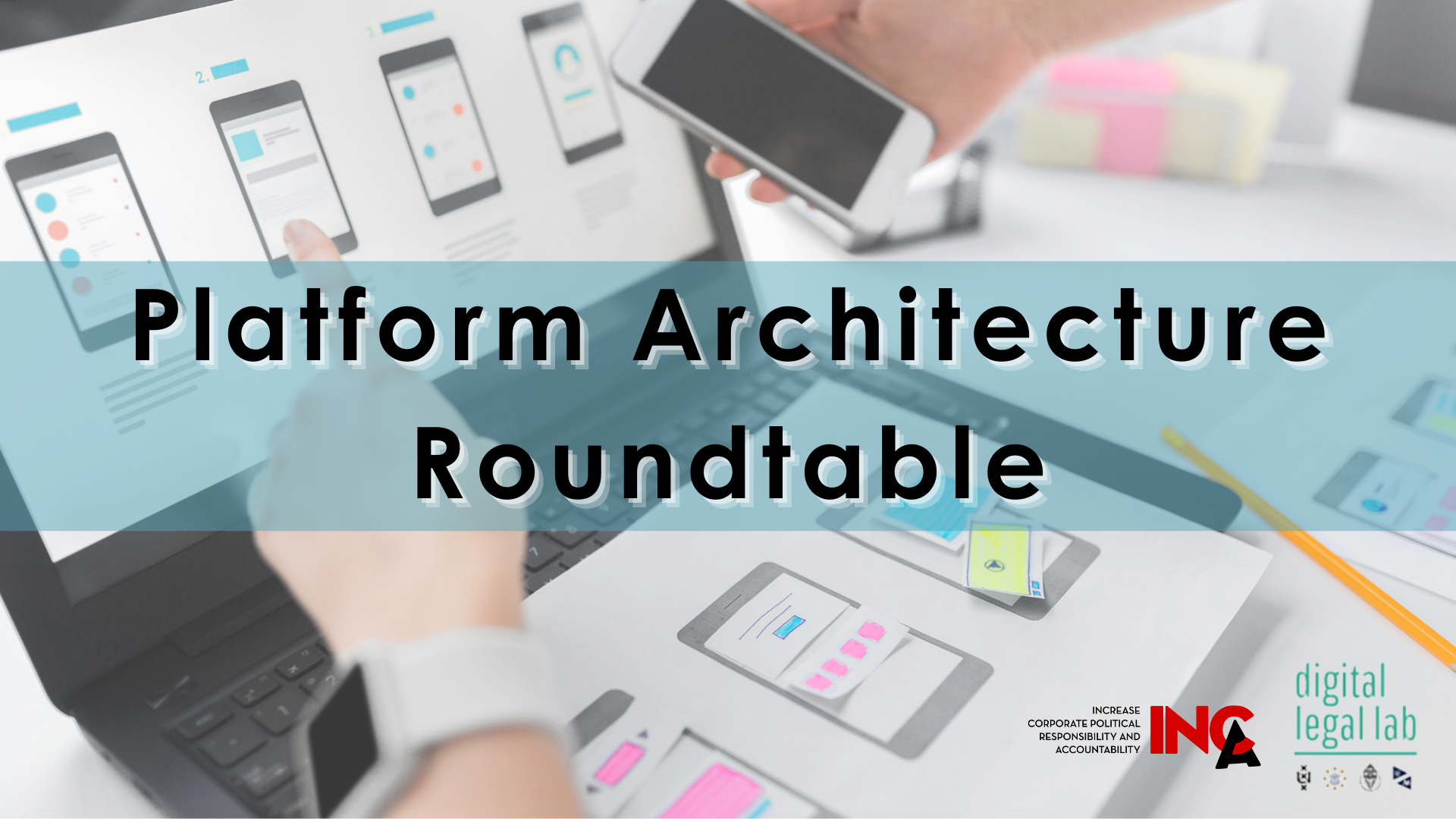
- This event has passed.
Platform Architecture Roundtable
25 January 2024 @ 9:30 am - 6:00 pm CET

Platform power comes in many shapes, which allow for different categorizations. One helpful categorization is based on the subjects of platform power. It distinguishes platform power over markets, over individuals, and over society. Platforms can abuse this power. A common way of doing so is through ‘choice architecture’, i.e., the way in which a platform designs its digital environment to guide the choice of its users. Implementing defaults, ordering results, and prominent placement are common examples of choice architecture.
Architectural choices can be neutral or even to the benefit of users, but they can also result in harm. A marketplace platform could, for example, nudge individual consumers to qualitatively inferior or over-priced products. When such nudges are systematic, they can have market-wide consequences. They could, for example, distort competition between sellers. This becomes more likely when a platform has a financial interest in promoting certain products or services over others (e.g., because they are affiliated to the platform). And when choice architecture influences the opinions of individuals, e.g., by hiding or removing content, society at large is affected.
Different legal instruments target platform power, and in particular choice architecture. Competition law and the Digital Markets Act focus on markets, consumer and data protection laws are more concerned with individuals, and the Digital Services Act and AI Act consider societal risks. Certain obligations, e.g., those aimed at transparency, are found in multiple instruments. Questions arise with regard to the regulatory fit (are there overlaps or gaps?) and effectiveness (does transparency work given the bounded rationality of individuals?).
Our event explores the different forms of platform power through the lens of choice architecture. The aim is not only to connect different branches of law, but also to learn from other disciplines such as ethics, computer science, and economics. Invitees include academics and selected representatives from industry, regulators and non-governmental organizations. The event takes the form of an interactive roundtable. To kickstart discussion, invited speakers give short opening remarks (around five minutes each). Everyone can then join into a lightly moderated debate. Discussion is structured within four panels.
There are a few seats left for those interested to participate. If you would like to attend, please contact Friso (f.bostoen@tilburguniversity.edu) or Inge (i.graef@tilburguniversity.edu).
Note that this is an in-person event, online participation is not possible.
Venue
Room RTZ 102 in the building Reitse Toren
Professor Cobbenhagenlaan 109, 5037 DB Tilburg
See a map here
The venue is a 5 minute walk from the Tilburg University train station.
Program – Thursday 25 January 2024
9.30–9.45 Opening
9.45–11.00 Panel 1: an interdisciplinary introduction to choice architecture – moderated by Giorgio Monti, Tilburg University
▪ Gunes Acar, Radboud University Nijmegen
▪ Bart Engelen, Tilburg University
▪ Ben Schroeter, Booking.com
▪ Shiva Shekhar, Tilburg University
11.00–11.15 Coffee break
11.15–12.30 Panel 2: choice architecture and individuals – moderated by Friso Bostoen, Tilburg University
▪ Silvia de Conca, Vrije Universiteit Amsterdam
▪ Raphaël Gellert, Radboud University Nijmegen
▪ Catalina Goanta, Utrecht University
▪ Anne-Jel Hoelen, Netherlands Authority for Consumers and Markets
12.30–14.00 Lunch at Esplanade (a 10 minute walk from the venue)
14.00–15.15 Panel 3: choice architecture and markets – moderated by Jasper van den Boom, Tilburg University
▪ Alessia D’Amico, Utrecht University
▪ Victoria Daskalova, Utrecht University
▪ Inge Graef, Tilburg University
▪ Claudio Lombardi, University of Aberdeen
15.15–15.30 Coffee break
15.30–16.45 Panel 4: choice architecture and society – moderated by Inge Graef, Tilburg University
▪ Quirine van Eeden/Mariëtte van Huijstee, Rathenau Instituut
▪ Joris van Hoboken, University of Amsterdam
▪ Maria Luisa Stasi, ARTICLE19
▪ Cristiana Teixeira Santos, Utrecht University
16.45–18.00 Closing and drinks
Convenors: Friso Bostoen & Inge Graef, Tilburg University